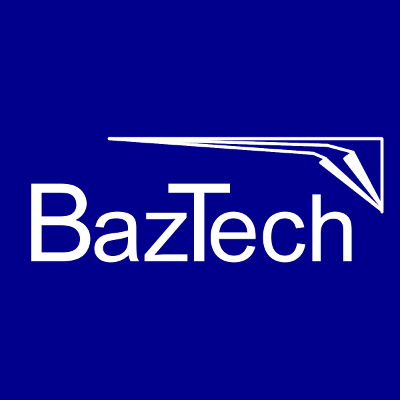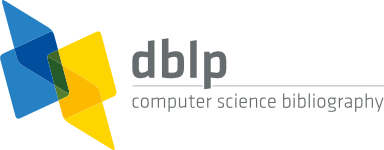The journal is committed to maintaining the highest level of integrity in the content published. Authors and reviewers of the e-Informatica Software Engineering Journal should follow high standards with respect to publication ethics as set out by the Commission on Publication Ethics (COPE). As a result, falsification or fabrication of data, plagiarism, including duplicate publication of the authors’ own work without proper citation, “ghost writing” and “guest authorship” are all unacceptable practices and will be treated seriously. Furthermore, authors and reviewers should reveal their conflicts of interest.
In the case of violation of ethics policies the editorial office of e-Informatica Software Engineering Journal will follow the procedures proposed by COPE. The journal may use plagiarism detection software to screen the submissions. Content published in this journal is peer reviewed.
Authorship
All authors listed on the manuscript should have contributed significantly to the paper (e.g. experimental design, its implementation, or analysis and interpretation of the data). It is dishonest to include authors only because of their reputation, position of authority, or friendship (“guest authorship”). All authors should have been involved in the writing of the manuscript at draft and any revision stages, and have read and approved the final version. Anyone who made major contributions to the writing of the manuscript should be listed as an author. Any other individuals who made less substantive contributions to the writing of the manuscript (or to the performed experiment) should be listed in the acknowledgement section. Performing technical services, translating text, identifying patients for study, supplying materials, and providing funding or administrative oversight over facilities where the work was done are not, in themselves, sufficient for authorship, although these contributions may be acknowledged in the manuscript. Any change in authorship (including author order) after the initial manuscript submission must be approved in writing by all authors. “Ghost writing” is prohibited by the Journal. When editors detect ghost written manuscripts, it will be documented and the authors’ academic institutions or commercial companies will be alerted.
Originality
By submitting your manuscript to the journal it is understood that this it is an original manuscript and is unpublished work and is not under consideration elsewhere. Plagiarism, including duplicate publication of the author’s own work, in whole or in part without proper citation is not tolerated by the journal. Manuscripts submitted to the journal may be checked for originality using anti-plagiarism software. Manuscripts that have been submitted simultaneously to other magazines, journals or to conferences, symposia, or workshops without the prior written consent of the Editor-in-Chief will be rejected outright and will not be reconsidered. Publication of expanded versions of papers that have been disseminated via proceedings or newsletters is permitted only if the Editor-in-Chief judges that there is significant additional benefit to be gained from journal publication and authors satisfy copyright law. A conference chair person can arrange with the Editor-in-Chief to publish selected papers from conferences, symposia, and workshops, after suitable reviewing. The papers must meet the editorial requirements for research articles. Acknowledgement of the originating conference should be included by the authors as a credit when the paper is published by the Journal.
The journal may use plagiarism detection software to screen the submissions. If plagiarism is identified, the COPE guidelines on plagiarism will be followed.
Conflicts of interest
At the point of submission, each author should reveal any financial interests or connections, direct or indirect, or other situations that might raise the question of bias in the work reported or the conclusions, implications, or opinions stated.
If reviewer feel there is any potential conflict of interest in refereeing assigned paper (e.g. in terms of close friendship or conflict/rivalry) or for any other reason, please declare it. A conflict of interest should be understood as one of the following: a) a direct personal relation between the two (family relationship, legal relationship, conflict), b) a reporting relationship, c) a direct scientific cooperation within two years prior to reviewing process. By accepting invitation, it is assumed there is no potential conflict of interest.
Procedures
In the case of violation of ethics policies the editorial office of e-Informatica Software Engineering Journal will follow the procedures proposed by COPE:
Authorship
How to spot authorship problems
Suspected ghost, guest or gift authorship
Corresponding author requests removal of author before publication
Request for addition of extra author after publication
Request for removal of author after publication
Corresponding author requests addition of extra author before publication
Conflict of Interest
What to do if a reviewer suspects undisclosed conflict of interest (CoI) in a submitted manuscript
What to do if a reader suspects undisclosed conflict of interest (CoI) in a published article
Data
Suspected fabricated data in a submitted manuscript
Suspected fabricated data in a published manuscript
Ethical problems
What to do if you suspect an ethical problem
Peer review
How to spot potential manipulation of the peer review process
What to consider when asked to peer review a manuscript
What to do if you suspect a reviewer has appropriated an author’s idea or data
Plagiarism
Suspected plagiarism in a submitted manuscript
Suspected plagiarism in a published manuscript
Redundant (duplicate) publication
Suspected redundant publication in a submitted manuscript
Suspected redundant publication in a published manuscript
Whistleblowing
Responding to Whistleblowers- concerns raised via social media
Responding to Whistleblowers- concerns raised directly








